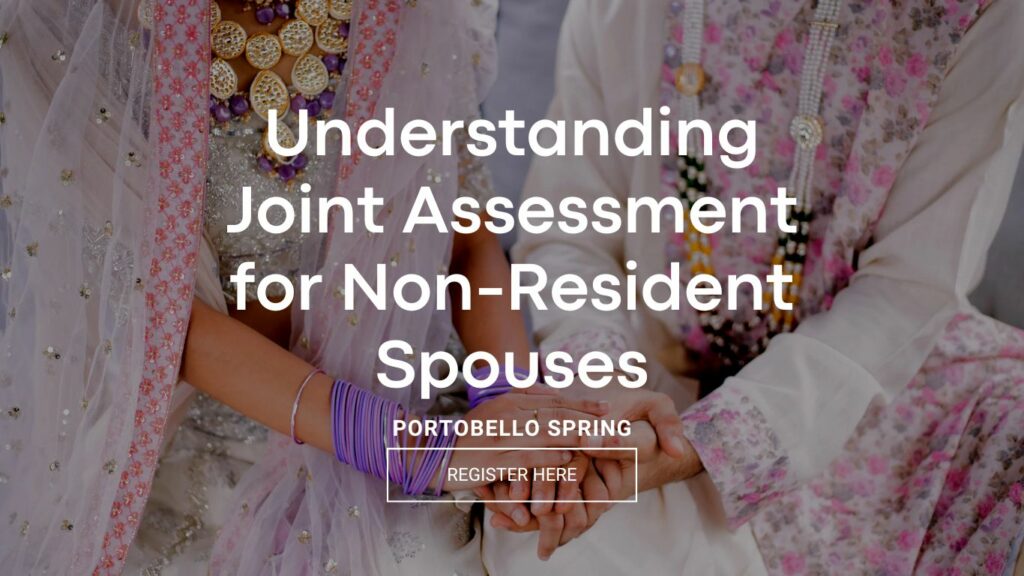Maximise Benefits When One or both Spouses are Non-Resident in Ireland
Navigating the complexities of tax benefits can be challenging, especially when one spouse or civil partner is a non-resident. This detailed guide will explore the tax benefits available to married couples and civil partners in Ireland when one partner is non-resident. We will examine the rules, scenarios, and examples to help you optimize your tax situation. So, Maximise Benefits When One or both Spouses are Non-Resident in Ireland.

Understanding Joint Assessment for Non-Resident Spouses
Section 1017 TCA (for married couples) and Section 1031C TCA (for civil partners) outline the rules for joint tax credit and standard rate bands. To be eligible, the assessable spouse or nominated civil partner must be chargeable to tax in Ireland.
Maximise Benefits When One or both Spouses are Non-Resident in Ireland
Tax Treatment When Only One Spouse Is Resident
When only one spouse or civil partner resides in Ireland and earns taxable income:
- They are taxed separately as a single person.
- They can receive single person’s basic tax credits and reliefs.
However, if the non-resident spouse has no income and the resident spouse’s earnings are the couple’s sole income source, the aggregation basis (joint assessment) may apply. This offers significant tax benefits but requires a return of income and a declaration of the non-resident spouse’s income at year-end.

Example: Peter and Paula
In 2024, Peter earns €45,000 from Irish employment. His non-resident spouse, Paula, has €10,000 in foreign investment income. Initially, Peter’s tax liability is calculated as:
- Income: €45,000
- Tax (Separate Treatment):
- €42,000 at 20% = €8,400
- €3,000 at 40% = €1,200
- Total Tax = €9,600
- Less Credits:
- Personal Tax Credit: €1,875
- PAYE Tax Credit: €1,875
- Total Credits: €3,750
- Tax Payable: €5,850
After claiming aggregation relief, his liability recalculates:
- Total Income: €55,000 (Peter’s €45,000 + Paula’s €10,000)
- Tax: €55,000 at 20% = €11,000
- Less Credits:
- Personal Tax Credit: €3,750
- PAYE Tax Credit: €1,875
- Total Credits: €5,625
- Tax Payable: €5,375
- Attributed to Irish Income: €4,398 (€5,375 × €45,000/€55,000)
- Relief Due: €1,452 (€5,850 – €4,398)
Tax Treatment When Both Spouses Are Non-Resident
When both spouses or civil partners are non-resident, but one has income taxable in Ireland:
- They are taxed separately as single persons.
- They can receive single person’s basic tax credits and reliefs.
Section 1032 TCA provides full personal tax credits and reliefs if 75% or more of worldwide income is taxable in Ireland. If one spouse earns all the income and the other has none, joint assessment may apply, offering the joint tax credit and increased rate band.

Example: Non-Resident Couple
A couple residing in the UK has one spouse earning €10,000 from an Irish directorship and €22,000 from UK employment. The other spouse has no income. The tax treatment is as follows:
- Without Aggregation:
- Irish Income: €10,000
- Tax: €2,000 (20% of €10,000)
- Less Credits:
- Personal Credit: €586 (€1,875 × €10,000/€32,000)
- PAYE Credit: €586 (€1,875 × €10,000/€32,000)
- Total Credits: €1,172
- Tax Payable: €828 (€2,000 – €1,172)
- With Aggregation:
- Worldwide Income: €32,000
- Tax: €6,400 (20% of €32,000)
- Less Credits:
- Personal Tax Credit: €3,750
- PAYE Tax Credit: €1,875
- Total Credits: €5,625
- Tax Payable: €775 (€6,400 – €5,625)
- Attributed to Irish Income: €242 (€775 × €10,000/€32,000)
- Relief Due: €586 – €242 = €344
Understanding and leveraging the appropriate tax assessment options can result in significant savings for couples where one spouse or civil partner is non-resident. Properly navigating these rules and ensuring all required declarations and returns are filed can optimize your tax benefits.
If you need personalized advice, our expert tax compliance team is here to help. Contact us today to ensure you maximize your tax benefits.
Maximise Benefits When One or both Spouses are Non-Resident in Ireland
Disclaimer:
The information in this blog post is intended for general informational purposes only and should not be construed as professional advice. It is your responsibility to seek professional advice tailored to your specific situation.
Let us help you make the right moves for your business by contacting and joining us
Join our newsletter now and get insights on the latest developments going on in the accounting, tax, incorporation, immigration and company secretarial world. Or, contact us by writing in your query in the contact form given below.

Leave a Reply